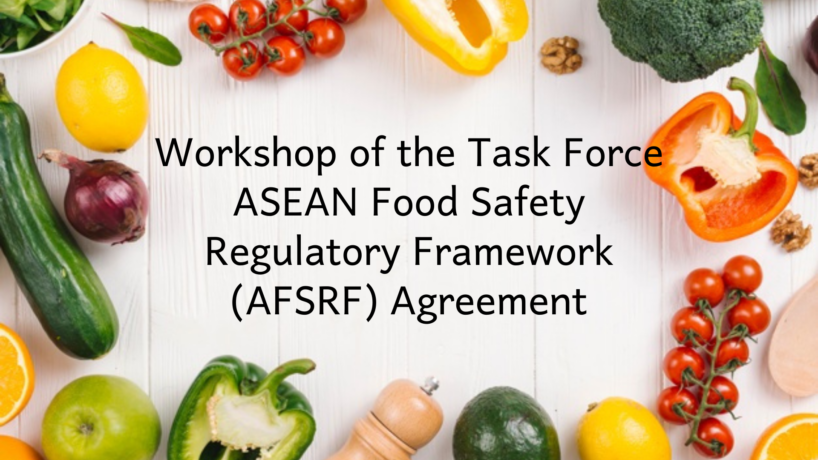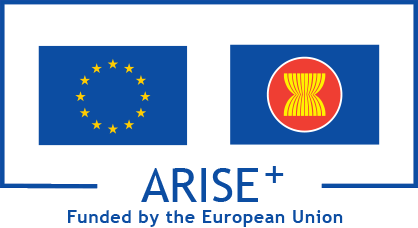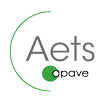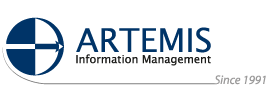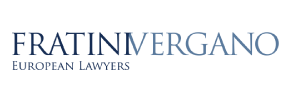The ASEAN Member States officials finalised the text of the ASEAN Food Safety Framework (AFSRF) Agreement in 2020. This Agreement is currently with ASEAN Member States and undergoing national consultation in preparation for the official signing. The Agreement provides the basis of a comprehensive regulatory framework for food safety. The objectives of the AFSRF Agreement provide for facilitating the free flow of safe food within ASEAN through the harmonisation of sanitary and phytosanitary measures and standards for food to minimise technical barriers for intra-ASEAN trade. The Agreement objectives will be achieved through the development and adoption of a series of protocols (legally binding instruments for specific food safety measures) in a phased manner.
The AFSRF Task Force, comprising of ASEAN officials from ASEAN Member States economic, health and agricultural sectors, met on 11th August 2021 to identify priority protocols as provided ASEAN Food Safety Framework (AFSRF) Agreement at a workshop supported by ARISE Plus.
The ASEAN bodies under the economic, health and agricultural sectors have over the years made substantial progress in developing recommended measures for harmonising food safety requirements in Member States. The achievements include development of a list of harmonised minimum levels of pesticide residues in crops (MRLs), harmonised requirements for food hygiene, process, and principles for harmonisation of food contaminants, food additives, general requirements for food contact materials and requirements for traceability for food and feed. Other achievements of the ASEAN bodies for provide for cooperation on sharing rapid alerts on food safety issues (through the ASEAN Rapid Alert System for Food and Feed-ARASFF) and cooperation on food safety risk assessment through the establishment of the ASEAN Risk Assessment Centre (ARAC). However, with the exception of the mutual recognition arrangement on food hygiene inspections and certification, other initiatives remain as voluntary guidelines. The transformation of these into binding obligations of Member States is a necessary step to effectively reduce intra ASEAN trade barriers.
Participants of the workshop reviewed the range of potential work items that merit consideration to be developed protocols under the Agreement. Both existing voluntary initiatives and new potential sectors that would serve to advance food safety and facilitate intra ASEAN food trade were considered. The participants deliberated on the criteria for prioritising the development of protocols, the processes and any other preparatory the actions to be recommended for the interim period leading prior to the AFSRF Agreement’s entry into force.
The workshop participants successfully narrowed down the priorities to 4 potential protocols (Pesticides MRLs, Food Contaminants, food additives and on sharing rapid alerts on safety of food and feed). The recommendations of the workshop will now enable the respective ASEAN Bodies to further develop these proposals and serve to facilitate a rapid achievement of the AFSRF Agreement’s objectives after its adoption.
